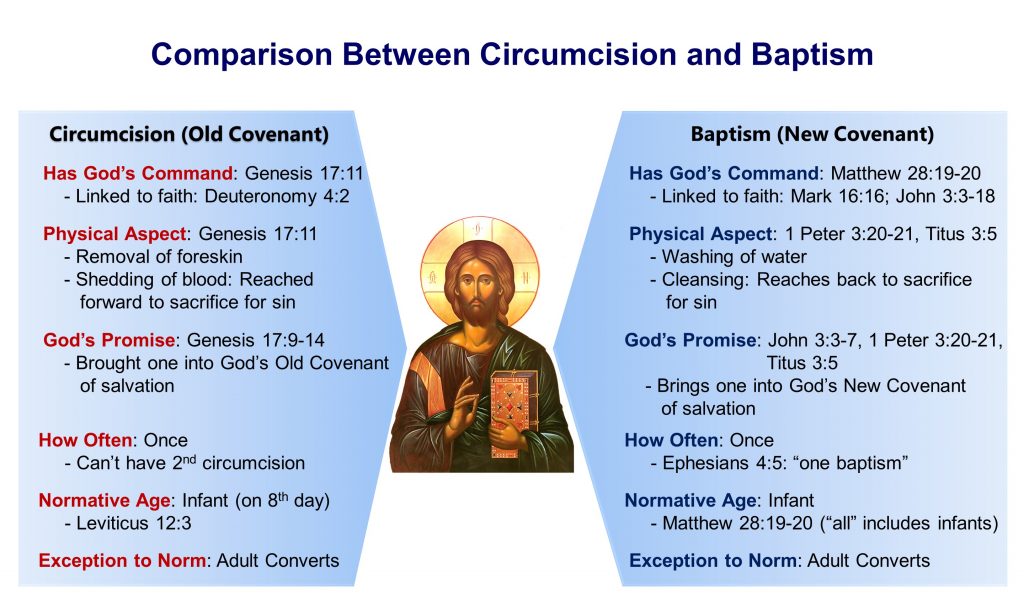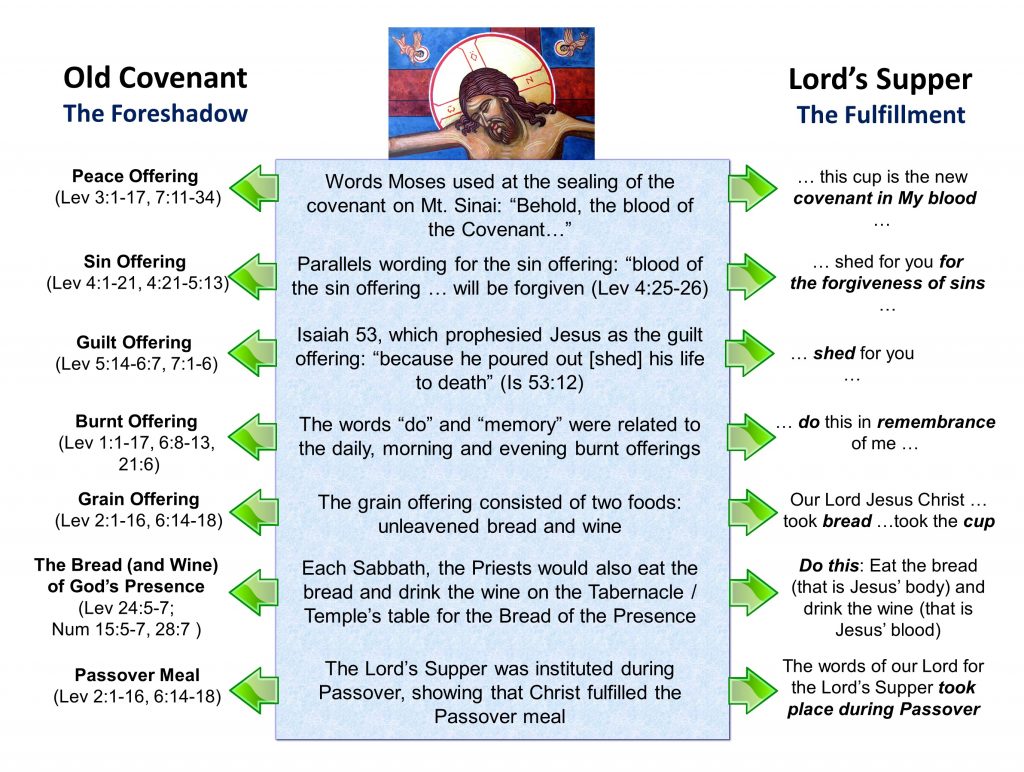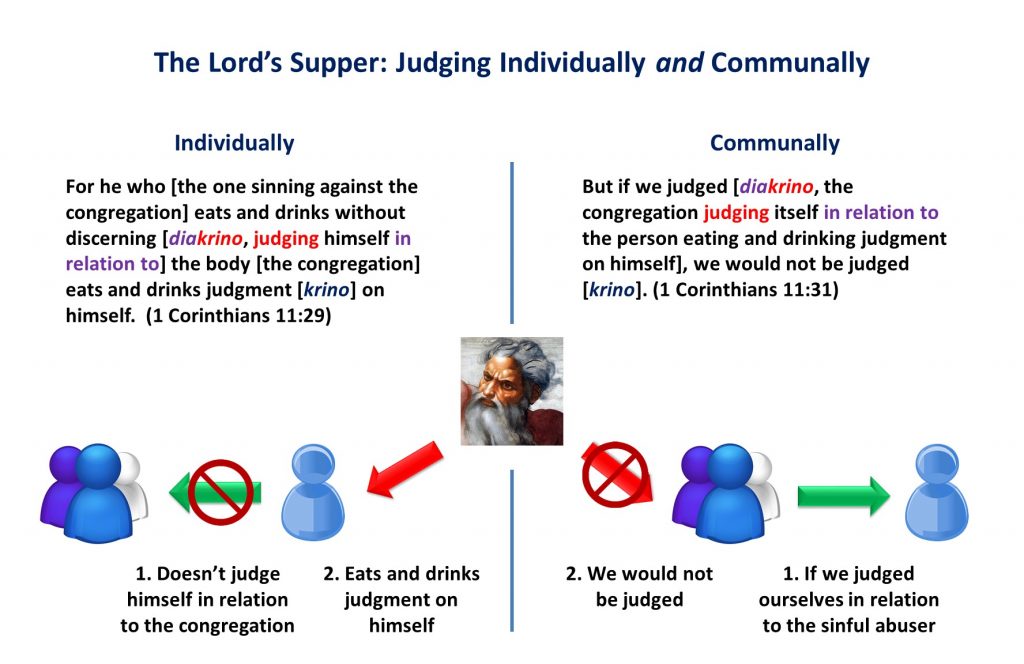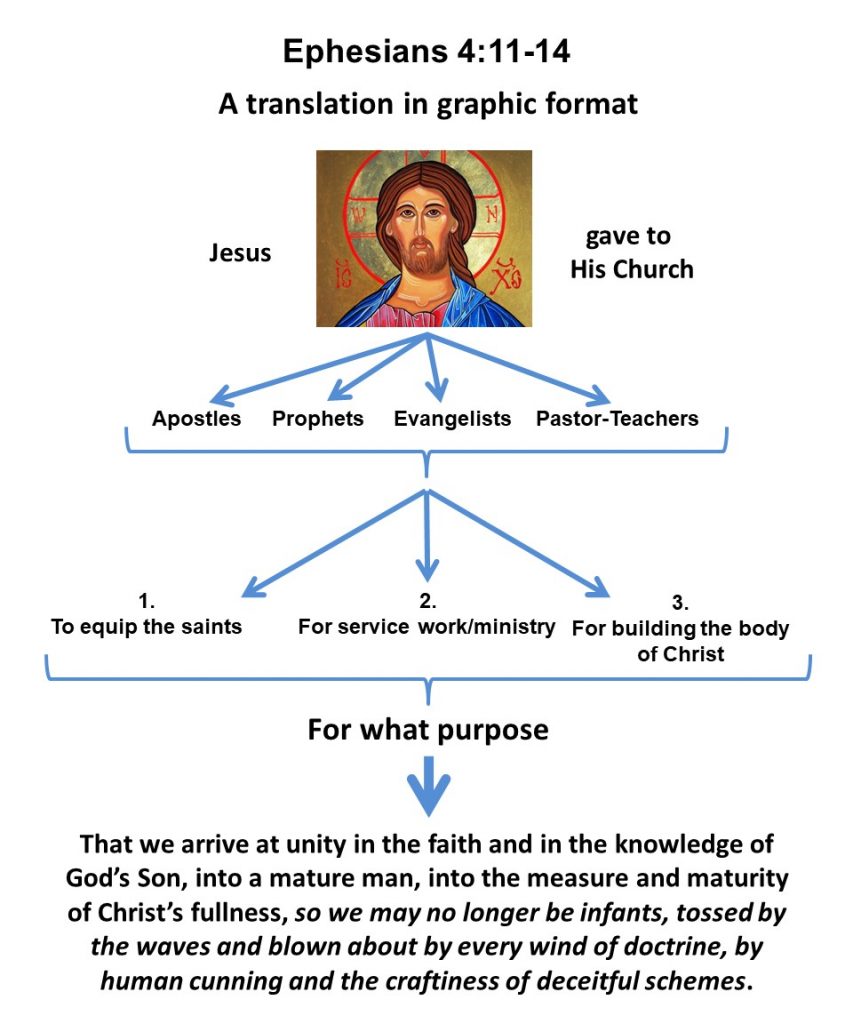 In His Body, Christ Redeemed Us, Bringing Us into His Body
In His Body, Christ Redeemed Us, Bringing Us into His Body
To save us, Jesus became incarnate, which means the eternal God also became fully human by His human birth. As both God and man, He considered it necessary to become a physical being to save us physical beings. In His human nature, He became what we are, sinful (by taking our sins into Himself) and mortal, so we can become what He is in His divinity—eternal and sinless.
Since Jesus is both what we are and what God is, He can bestow on us what only God can. His physicality then becomes the bridge to achieve this. Though Jesus earned our salvation, how does He deliver the salvation He won for us?
The necessity of Jesus’ physicality for our salvation also mandates something physical for our salvation. We know this is true—not only by how God saved us in Jesus Christ—but also by He delivered and delivers His salvation to us.
The Old Covenant: A Shadow of Things to Come
Even before Christ became incarnate, God used the physical to save His people. This was not in contrast to faith—but along with faith. The two were always meant to go together.
Read Genesis 17:9-14
- What did circumcision do and also signify?
- What happened if a baby wasn’t circumcised? (What does the wordplay of “cut off” tell us?)
Read Leviticus 13:14-21
- What did God do through the sacrificed animal?
The Fall into sin was a physical act—eating what was forbidden. So salvation is also something physical, requiring physical matter. Hebrews 9:22: “Without the shedding of blood, there is no forgiveness.”
Colossians 2:16-17:
Don’t let anyone judge you regarding food and drink or in the matter of a festival or a new moon or a Sabbath day [which were all mandated in the Old Covenant]. These are a shadow of what was to come; the substance is Christ.
Baptism
Who is Included
Circumcision was a physical ritual through which God brought a baby boy into His Old Covenant. In His New Covenant, God now included more than Jews, bringing in the Gentiles. So also does the New Covenant’s fulfillment of circumcision move beyond only males to include females.
Matthew 28:19:
Therefore, after you go, disciple all the nations [Gentiles, ethnee], baptizing them in the name of the Father, and the Son, and the Holy Spirit…
- Who is included in the “all”? Is any particular age, ethnicity, or gender is excluded?
What God Does Through Baptism
Colossians 2:11-13
You were also circumcised in him with a circumcision not done with hands, by putting off the body of flesh, in the circumcision of Christ, when you were buried with him in baptism, in which you were also raised with him through faith in the working of God, who raised him from the dead. And when you were dead in trespasses and the uncircumcision of your flesh, he made you alive with him and forgave us all our trespasses.
- Through baptism, who makes you alive with Christ and forgives you all your trespasses?
- If God brought a baby boy into His Covenant through circumcision, what is Paul implying God does in the New Covenant through baptism?
1 Peter 3:20-21
In the past, God patiently waited in the days of Noah while the ark was being prepared. In it, a few—that is, eight people—were saved through water. Corresponding to this [God saving Noah’s family through water], baptism now saves you—not by removing dirt from the body, but as an appeal of a good conscience toward God through the resurrection of Jesus Christ.
- What does baptism do and what physical matter does God use?
- How can baptism save?
Romans 6:3-5
Or are you unaware that all of us who were baptized into Christ Jesus were baptized into his death? Therefore, we were buried with him by baptism into death, in order that, just as Christ was raised from the dead by the glory of the Father, so we too may walk in newness of life. For if we have been united with him in the likeness of his death, we will certainly also be in the likeness of his resurrection.
- Through the physical matter of water, whom does God unite us to and His physical death and resurrection? What does this do?
John 3:3, 5, 16:
Jesus replied [to Nicodemus], “I assure you: Unless someone is born from above, he cannot see the kingdom of God…. I assure you: Unless someone is born of water and the Spirit, he cannot enter the kingdom of God.” [In the same conversation to Nicodemus, Jesus later said,] “For this is how God loved the world: He gave his one and only Son so that everyone who believes in him will not perish but have eternal life.”
- How does Jesus link being “born of water and Spirit” and faith?
- Can someone choose to be born or is it something that happens to Him? Thus, how is one “born from above”?
The Lord’s Supper
As one must be physically born to be physically alive, God gives us spiritual birth by His Spirit working through the water in baptism. In Baptism, we find a union of Spirit and physical water to give spiritual life to us physical beings.
Once born, as physical beings, we need to eat. If not, we will die of starvation. As God united Himself to water to give us spiritual birth, now He will unite Himself to the physical to give us spiritual nourishment. It’s not coincidental that Jesus institutes the sacraments of Baptism and His Supper for our spiritual nourishment and life.
Matthew 26:26-28:
As they were eating [the Passover Meal], Jesus took bread, blessed and broke it, gave it to the disciples, and said, “Take and eat it; this is my body.” Then he took a cup, and after giving thanks, he gave it to them and said, “Drink from it, all of you. For this is my blood of the covenant, which is poured out for the many for the forgiveness of sins.
- What does Jesus call the bread?
- What does Jesus call that which is in the cup (which we know is wine because it was a Passover meal)?
- Through His body and blood, what does Jesus deliver to us?
Luke 22:20:
In the same way, he also took the cup after supper and said, “This cup is the new covenant in my blood, which is poured out for you.”
- On Luke’s Gospel, what do we find out about this Covenant Jesus institutes?
- Because it is the “New Covenant,” what does that mean about the Old.
Matthew 5:17:
[Jesus speaking to the crowd,] “Don’t think that I came to abolish the Law or the Prophets. I did not come to abolish but to fulfill.”
Luther had a good understanding on this:
We trust our God, who has willed to be born of Mary spiritually and physically but not to be eaten and drunk by her physically or spiritually. By the shepherds and Simeon, he wanted to be seen spiritually and physically but not born and not eaten. So, according to his good pleasure, he has permitted himself to be physically and spiritually handled, seen, heard, born, suckled, carried, touched, and the like by whomever he willed. But here in the Lord’s Supper he wants to be neither born nor seen nor heard nor touched by us but only eaten and drunk, both physically and spiritually. [Luther’s Works, vol. 37, pg. 94]
What it Means to be United to Christ
In 1 Corinthians 11, Paul dealt with the Corinthian congregation’s abuse of the Lord’s Supper. Because the wealthier members made fun of the poorer members and also got drunk on the wine (vs. 21-22), Paul reprimanded those wealthier abusers.
1 Corinthians 11:26-27:
For as often as you eat this bread and drink the cup [of the Supper], you proclaim the Lord’s death until he comes. Whoever, therefore, eats the bread or drinks the cup of the Lord in an unworthy manner will be guilty concerning the body and blood of the Lord.
Here, the unworthy participant sins against the body and blood of Jesus, which He just received in the Supper. Paul then explains what made him unworthy. 1 Corinthians 11:28-30: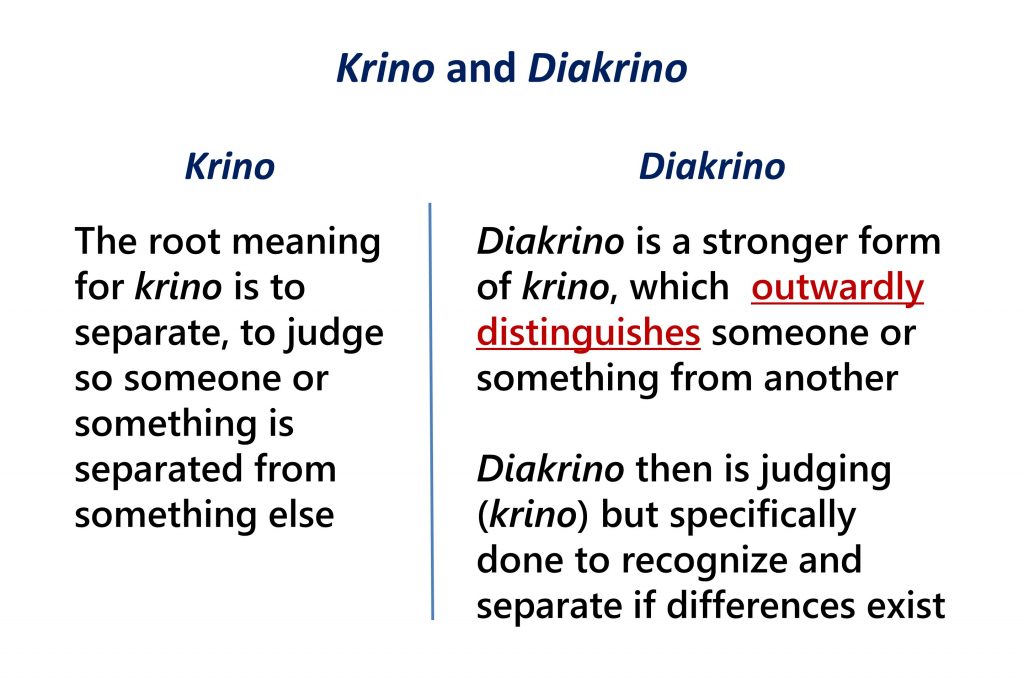
Let a person examine himself, then, and so eat of the bread and drink of the cup. For anyone who eats and drinks without discerning [diakrino] the body eats and drinks judgment on himself. That is why many of you are [spiritually] weak and ill, and some have died. But if we judged [diakrino] ourselves truly, we would not be judged [krino].
Here “body” refers to the congregation, not the body of Christ in the Lord’s Supper. We know this because Paul spoke against those sins directly committed against the congregation (vs. 21-22, that “body of Christ”), not the body and blood of Christ in the Lord’s Supper (vs. 27).
Paul was admonishing those capable of examining themselves to do so to see if they had made themselves unworthy. Did you destroy the unity we have in Christ at His Table? This differentiating or judging was to see if they were of a different mind than what Jesus had made His people (the “body,” the congregation) to be. If so, don’t commune; Paul’s words of repentance are directed toward you. If not, commune; Paul’s words of repentance are not directed at you.
When someone sins against the congregation, he is also sinning against Christ because Christ and His Church are one. In other words, those united to Christ in baptism are united to Him!
- Romans 12:5: “we who are many [Paul and the congregation at Rome] are one body in Christ.”
- Colossians 1:24: “Now I [Paul] rejoice in my sufferings for you [the congregation at Colossae], and I fill up in my flesh what is still lacking in regard to Christ’s afflictions, for the sake of his body, that is, the Church.”
- Galatians 3:27: “All of you who were baptized into Christ have clothed yourselves with Christ.”
- Ephesians 5:29-30: “For no one ever hates his own flesh but provides and cares for it, just as Christ does for the Church since we are members of His body.”
Just as the fall into sin was a physical act, so is sinning against the body of Christ. By eating and drinking in the Supper as if you are one when you are not, you sin against both the congregation and Christ in that physical act.
The Body of Christ as His Church
Jesus saved us by becoming a physical being. He uses physical matter to save us physical beings: water in baptism and bread and wine in His Supper. These are communal events, which take place in His Church, a gathering of physical beings in a physical space to receive our Lord’s physical presence. “We should not stay away from our assembly, as is the habit of some. Instead, encourage each other—and all the more as you see the Day approaching” (Hebrews 10:25). Why? We go to Church to “get saved.”
Salvation is a Past, Present and Future Event
- Ephesians 2:8-9: For by grace you have been saved [past time event] through faith, and this is not from yourselves; it is a gift of God, not from works so that no one can boast.
- 1 Corinthians 1:18: For the Word of the cross [the preached Word] is foolishness to those who are perishing, but to us who are being saved [present tense event] it is the power of God.
- Romans 5:9: Since we have now been declared righteous by His blood [that is, saved], we will be saved [a future time event, the Last Day] through Him from the wrath of God.
We receive such salvation through what Jesus instituted His Church to do until He returns on the Last Day when all God’s saints will receive the fullness of His salvation that He has for them.
We Go to Church to Grow in the Faith
Read Ephesians 4:11-14
This is a hard passage to translate and understand because the only subject is Christ, the “He” in verse 11, with the entire focus on what He gives, not on what we do. So, the question is not what we do in the Church but what Jesus gives us, how and through whom He chooses to do so, and for what purpose. Why does Jesus give to His Church?
Gathered as a physical assembly and the body of Christ, we are saved and strengthened in the faith. This is not only not to fall or drift away, but to arrive at unity in the faith and the knowledge of God’s Son, to mature into Christ’s fullness. All this is the prepare us for the Last Day when Christ returns as a physical man.
